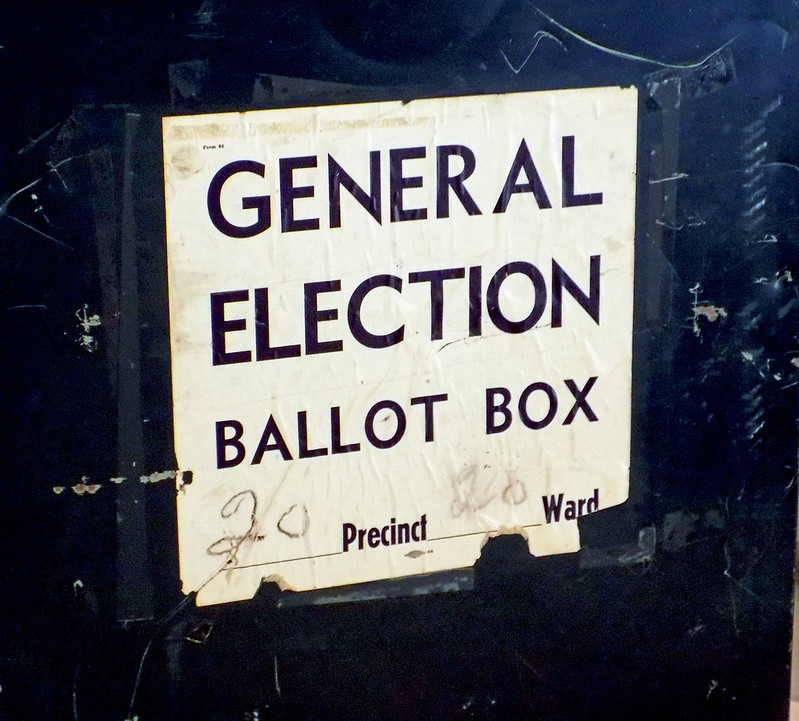The Democratic primary and 2020 presidential election are just around the corner. The Democratic nominee’s best chance of winning likely involves trying to get votes from Trump supporters in swing states. In an effort to do this, the nominee will almost certainly attack Trump’s personal moral character. As polls suggest, many of his supporters won’t care. They’ll draw a sharp line between the person and their policies. I am going to argue that they’re basically right to do this. Trump should be voted out of office because he’s been a terrible president — not because he’s been a terrible person.
Endless ire is directed at Trump for being a morally terrible person in his private life. He deserves it. The full list of Trump’s personal moral flaws is far too long to review here, though many of the most egregious are well known. He’s repeatedly cheated his employees, business partners, and students of his fake university; he’s also cheated on his wives. On countless occasions, he demonstrated himself to be an unrepentant racist, ableist, homophobic, Islamophobic, transphobic, misogynist.
Many people, including those in the media, treat the fact that Trump is a terrible person as a decisive reason not to vote for him. The implication is that Trump’s personal moral failings make it wrong for people to support him politically. This is a mistake: sometimes, we should support candidates who say and do morally terrible things in their personal life.
When, exactly? Whenever the person who has done morally terrible things would do more good in office than any other candidate. To be clear, I agree that Trump has done morally terrible things in his personal life and I agree that people shouldn’t support him politically, but I deny that we shouldn’t support him politically because he’s done morally terrible things in his personal life.
Rather, our support for political candidates should be almost exclusively determined by how good it would be for the world if this candidate were elected — relative to our alternatives. This position may seem odd, but it’s one that I think many will find plausible upon reflection. To see why, consider an analogy. Suppose that there are ten people trapped in various places around town in a snowstorm. You have the keys to the only snowplow, which you can give to one of two people. The first is a moral saint whose moderate snowplow driving skills would result in just three people being rescued. The second is a moral reprobate whose superior snowplow driving skills would result in all ten people being rescued. Suppose, furthermore, that whoever ends up driving the plow will become (locally) famous and receive numerous accolades for their rescue mission. Though, neither will use their newfound place in the spotlight to do anything else as important as saving lives.
Who should get the keys? It seems clear that you should give the keys to the moral reprobate who is going to save all ten lives over the moral saint who is only going to save three. This is so even though you’ll be giving power to a person who has done morally terrible things in their personal life. This is regrettable, but ensuring that more good people are saved is simply more important than ensuring that those doing the saving are themselves good people.
Now, the president can shape domestic and foreign policy in ways that affect the lives of billions of people, including future generations. This means that the reason to prioritize the value of a president’s effects on the world over their personal moral character is exponentially greater in the real world than in my snowplow case.
Perhaps you’re worried that my analogy is too simple. After all, some of the particular ways in which Trump was a morally terrible private citizen provided good evidence that the policies he would enact would likewise be morally terrible, and indeed they were. If this is right, then Trump’s personal moral failings are at least indirectly relevant to whether we should support him politically. This much seems right to me. But this does not vindicate the ever-so-common assumption that a candidate’s personal moral failings themselves determine whether we should support a candidate politically.
In fact, if I am right, many candidate’s personal moral failings should play almost no role in our political deliberation. This is because personal moral failings simply tell us less about how a candidate would act in office than the candidate’s platform and political affiliation. Moreover, moral failings often tells us very little about what candidates would do in office. For instance, Trump’s infidelity told us nothing about how he would try to change the tax code or our healthcare system or much of anything, really. On the other hand, Trump’s history of xenophobic comments was good evidence that he would support xenophobic policies. So, a candidate’s personal moral failings can be quite relevant to the question of whether they deserve our political support, but this will only apply in cases where the candidate’s personal moral failings provide good evidence of political moral failings. This consideration won’t apply in cases where a candidate’s personal moral transgressions are unrelated to policy issues (e.g. infidelity) or when they’ve genuinely disavowed past moral transgressions (e.g. opposition to gay marriage).
My view may seem to be on shaky ground when applied to Trump: he’s such a uniquely morally terrible person. But I’m not so sure it is. To see why, simply imagine that we’re faced with the choice of electing one of two candidates. One acts just like Trump does in his personal life, but would use his political power to enact whatever you take to be the best possible policies. Perhaps this includes mitigating the effects of climate change, providing universal healthcare, ending factory farming, and so on. The second is a moral saint in their personal life, but would do exactly what Trump has done in office. Whom should we elect? I think the answer is clear.

